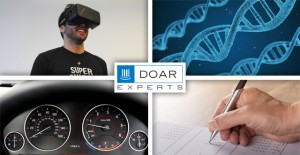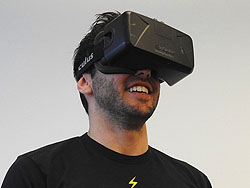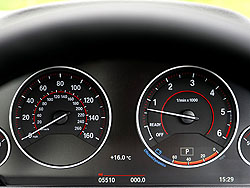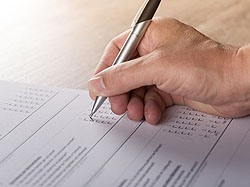Source of article DOAR Litigation Consulting.


Expert Witness Testimony Key In $500 Million Verdict Against Facebook Subsidiary
Earlier this month, a Texas federal jury determined that Oculus, a subsidiary of Facebook, and some of its executives must pay $500 million in damages to video game developer ZeniMax Media for copyright infringement, trademark infringement, and breach of a non-disclosure agreement. Oculus Chief Technology Officer John Carmack, a former employee of ZeniMax, was also found liable for conversion.
The suit was premised upon ZeniMax’s claims that Oculus built its virtual reality technology (i.e., headsets) using software code and ideas stolen during Carmack’s tenure with ZeniMax. The crux of the battle hinged largely upon clashing expert witness testimony.
An expert for ZeniMax testified that he was “absolutely certain” Oculus copied ZeniMax code, and that “fingerprints” of ZeniMax’s work were in the Oculus code.
Facebook’s computer science experts testified that their intensive review of Oculus’ source code revealed that it did not incorporate code written by Carmack. In addition, Facebook’s experts testified that the Carmack-written code for several components of virtual reality was neither copyrighted nor trade secret, as they were based on public knowledge, including published academic papers and online postings.
One day after the verdict was rendered, John Carmack published a statement on his Facebook profile slamming the testimony of his adversary’s expert witnesses. Carmack, who rarely offers lengthy commentary in public, wrote of the experts, “I just wanted to shout ‘You lie!’” In particular, he took issue with the adverse expert’s use of phrase “absolutely certain.” Carmack wrote,
After he had said he was “Absolutely certain there was non-literal copying” in several cases, By the end, after seven cases of “absolutely certain”, I was wondering if gangsters had kidnapped his grandchildren and were holding them for ransom.
If he had said “this supports a determination of”, or dozens of other possible phrases, then it would have fit in with everything else, but I am offended that a distinguished academic would say that his ad-hoc textual analysis makes him “absolutely certain” of anything. That isn’t the language of scientific inquiry.
Carmack then lamented that he “wasn’t allowed” to read the full expert report, and that the public is unable review the expert’s sealed testimony. He contended, “This is surely intentional — if the code examples were released publicly, the internet would have viciously mocked the analysis.”
Finally, Carmack strongly suggested that the expert witness sold his integrity for the gig and argued that testifying in court as an expert “should be as much a part of your permanent public record as the journal papers you publish. In many cases, the consequences are significant. There should be a danger to your reputation if you are imprudent.”
In moving forward, ZeniMax has indicated that it may pursue an injunction to block the sales of Oculus’ virtual reality device. If successful, the injunction may be more detrimental to the Facebook subsidiary than the $500,000,000 judgment.
 The Undisclosed “Percipient” Witness With Substantive Expertise: Rule 26 And The $8 Million Verdict Against Bio-Rad
The Undisclosed “Percipient” Witness With Substantive Expertise: Rule 26 And The $8 Million Verdict Against Bio-Rad
After three weeks of trial and just three hours of deliberations, a Northern District of California federal jury awarded $8 million to Sanford S. Wadler. Wadler, the former general counsel of defendant Bio-Rad Laboratories, claimed that Bio-Rad, a life sciences research company, unlawfully retaliated against and wrongfully terminated him for reporting possible Foreign Corrupt Practices Act violations.
At trial, Bio-Rad’s ability to defend Wadler’s allegations was curtailed when U.S. Magistrate Judge Joseph Spero limited the testimony of Patrick Norton, a “world-renowned” expert in the FCPA. Bio-Rad hired Norton in 2010 for purposes of investigating its FCPA violations. Despite this, Wadler’s attorneys objected to any technical testimony from Norton on the basis that he had not been registered as an expert under Rule 26. As such, they argued, Norton could only testify as a layperson about reports he made to Bio-Rad.
Judge Spero stated that there was little case law to guide him through the 2010 changes to Rule 26 of the Federal Rules of Civil Procedure. At that time, the legislature articulated two distinct categories of expert witnesses: (A) “reporting witnesses,” who are “retained or specifically employed to provide expert testimony;” and (B) “non-reporting experts,” who are subject to less stringent disclosure requirements.
The latter category of “non-reporting experts” generally consists of treating physicians, who are usually treated as fact witnesses and are not required to provide an expert report. “They are a species of percipient witness… not specially hired to provide expert testimony; rather, they are hired to treat the patient and may testify to and opine on what they saw and did without the necessity of the proponent of the testimony furnishing a written expert report.” Goodman v. Staples The Office Superstore, LLC, 644 F.3d 817, 819 (9th Cir. 2011).
Although Norton’s role at Bio-Rad was analogous to that of a treating physician, he was largely prevented from proffering his opinions on the witness stand. Accordingly, Wadler v. Bio-Rad
stands for the proposition that when making disclosures pursuant to Rule 26, counsel must carefully consider whether any of its percipient fact witnesses have heightened credentials or expertise that would qualify them as “experts” worthy of sharing opinions on the witness stand.
 Fourth Circuit Finds That Expert Witness’ Testimony Should Have Been Excluded Under Daubert, Reversing $3M Verdict Against Ford Motor Co.
Fourth Circuit Finds That Expert Witness’ Testimony Should Have Been Excluded Under Daubert, Reversing $3M Verdict Against Ford Motor Co.
The Fourth Circuit recently reversed a $3 million verdict against Ford Motor Company in a products liability suit, after determining that expert testimony should have been excluded at trial under Daubert v. Merrell Dow Pharmaceuticals, Inc.
Plaintiffs Howard and Nancy Nease alleged that Howard suffered serious injuries in an accident caused by a design defect in the speed control system of his 2001 Ford Ranger pickup truck. Howard was traveling about 50 mph along Route 60 in West Virginia when he realized he could not slow down by letting off the accelerator or braking. In order to avoid cars and pedestrians, he steered off the road, jumped a curb, and crashed into a car wash. The wheels continued spinning for about 30 seconds until the engine shut down.
At trial, plaintiff presented the expert testimony of Samuel Sero. Sero testified that he performed a visual inspection of the accelerator and determined that the speed control cable in the 2001 Ranger is susceptible to getting stuck or “bound” while the throttle to which it is linked is in the open position, thus preventing the driver from slowing down the vehicle. He further testified that a 1987 Ford report identified the same problem, and that safer designs for the part existed at the time of plaintiff’s accident.
On cross-examination, Sero admitted that he neither tested the accelerator nor did he test any of the alternative designs that he had opined were safer.
A West Virginia jury awarded the plaintiffs just over $3 million in damages. Ford appealed to the Fourth Circuit claiming, among other things, that Sero’s testimony was inadmissible under Daubert.
The Fourth Circuit ultimately agreed with Ford. It determined that the trial judge did not use Daubert or “any other factors” in assessing the reliability of Sero’s testimony before allowing him to present to a jury. Essentially, the trial court had “abandoned its gatekeeping function” in failing to consider Federal Rule of Evidence 702 or Daubert.
In applying Daubert, the Fourth Circuit determined that Sero’s opinion regarding the inner workings of the vehicle was presented as a hypothesis only. Without validating his hypothesis using testing, his testimony had no reliable foundation. “Sero’s failure to test his hypothesis renders his opinions on the cause of Howard’s accident unreliable,” the panel said.
The Fourth Circuit panel further concluded that, absent any other expert testimony to
establish design defect and the availability of safer alternative designs that a reasonably prudent manufacturer would have adopted, the plaintiffs could not prove their case. Accordingly, the case was reversed and remanded for entry of judgment in Ford’s favor.
 DOAR Affiliate Expert Assists Class Action Law Firm With Contingent Fee Petition In Record-Breaking $76M Robocall Settlement
DOAR Affiliate Expert Assists Class Action Law Firm With Contingent Fee Petition In Record-Breaking $76M Robocall Settlement
DOAR Affiliate Dr. Larry Chiagouris, an expert in consumer research, recently assisted prominent class action law firm Edelson P.C. in petitioning the Northern District of Illinois to award attorneys fees based upon the “percentage of the fund” computation method.
By way of background, the case, Birchmeier et al. v. Caribbean Cruise Line Inc., et al., involved accusations that Caribbean Cruise Line Inc., Berkley Group Inc. and Vacation Ownership Marketing Tours Inc., made calls with a recorded message offering a free cruise in exchange for taking a political survey, in violation of the Telephone Consumer Protection Act. In late 2016, after years of litigation, the Court approved a settlement agreement requiring defendants to pay a total of $56-$76 million to approximately 900,000 class members.
Following a settlement agreement, however, Seventh Circuit precedent requires court approval of attorneys fees. Generally, in consumer class action litigations, courts determine attorneys fees according to either a percentage, which is proportional to the settlement fund, or the “lodestar” figure, which calculates the fee as the product of reasonable hourly billing, multiplied by the number of hours spent litigating the action. One common method courts consider in choosing between the percentage and lodestar approaches is to determine what class members would have negotiated to pay counsel ex ante, at the beginning of the case, based upon the calculation method most commonly used in the marketplace at that time.
While the settlement agreement permitted class counsel to ask for up to $24.5 million in fees, Edelson was nonetheless subject to the discretion of the court. Thus, the class action attorneys teamed up with DOAR and its Affiliate Expert Dr. Chiagouris to show that the percentage method of computing attorneys fees would have been used at the relevant time.
In support of counsel’s motion, Dr. Chiagouris conducted consumer research on the reasonable “market rate” and prepared an expert declaration. DOAR assisted in the design, implementation, and management of Dr. Chiagouris’ consumer research survey, and analyzed the data used by Dr. Chiagouris. The survey showed that consumers’ willingness to split fees mostly remained constant across different levels of recovery; as recovery amount increased, consumers remained willing to split the fees at the same rates as for lower recovery levels. Dr. Chiagouris ultimately concluded that people are willing to pay more, both in absolute terms and as a percentage, to obtain a better recovery in a class action such as Birchmeier.
A copy of Dr. Chiagouris’ Expert Report is available here.
Data security for handling sensitive information is becoming a heightened priority for BigLaw firms and their corporate clients. Attorneys have an ethical obligation to protect data. When retaining an expert witness, it is good practice to discuss a strategy to ensure safe data handling, confidentiality, and security.
Frozen at the Ninth Circuit: An Expert on Fairy Tales?
An author claiming that Walt Disney Company’s Frozen infringes the copyright to her story, “The Snow Princess,” is appealing her suit to the Ninth Circuit, arguing that the trial judge erred in dismissing her case for lack of similarities between the two works. The appeal brief contends, “Here, the plaintiff does not know how many fairy tales the judge has read, which ones he has read, how long ago he read them, and in what context he read them (as
The post DOAR Experts Monthly Update appeared first on DOAR.
